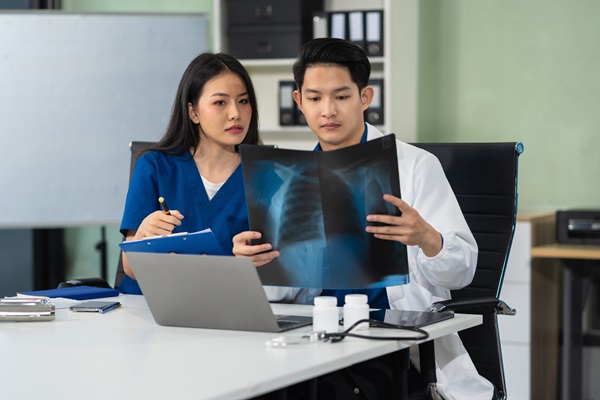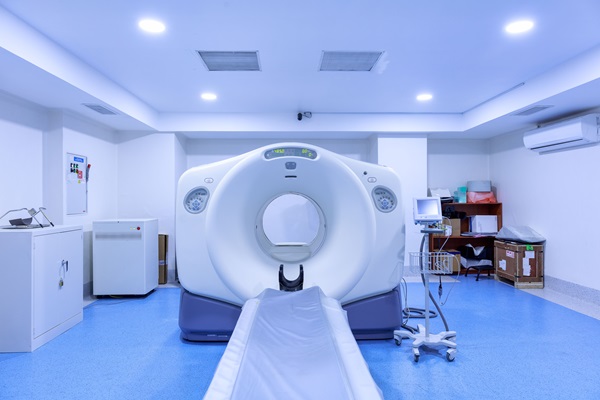When Is a DOT Physical Necessary?

A DOT physical is a medical examination that is needed in order to work as a commercial driver in the U.S. DOT stands for “Department of Transport”. A DOT physical includes checks to assess the specific health issues associated with driving long distances. It is much like the physical checkups required in other fields for occupational health.
Why do drivers need health checkups?
Driving may not seem an obviously strenuous activity. But, anyone who does it for a living knows otherwise. Sitting at the wheel for long hours every day takes a toll on endurance. Driving can require varied shifts, both late and early. This can place further stress on the person’s metabolism.
Drivers need to be in good health overall. They need good eyesight first and foremost. The ability to concentrate for extended periods of time is also necessary. Truck drivers must be sufficiently fit and strong to load and unload vehicles.
Who needs a DOT physical?
There are four broad categories of people who are required to get a DOT physical:
- Drivers who transport hazardous chemicals
- Drivers who are paid to transport 8+ people at a time
- Drivers transporting 15+ people, whether paid or unpaid
- Drivers in charge of a motorized vehicle weighing over 10,000 lbs (gross weight, including passengers and load)
“Commercial Drivers” include truckers, bus drivers, and construction vehicle operators. Also, this includes anyone requiring a Heavy Goods Vehicle (HGV) license. It is not generally for taxi drivers or people employed to drive passenger cars or light goods vehicles. The Department of Transport requires HGV drivers to get a medical checkup before taking commercial driving work. A DOT physical shows the person is physically fit to drive commercially for two years. People with diabetes, heart disease, or high blood pressure may have to get an annual DOT physical.
What does a DOT physical involve?
The DOT physical begins with filling in a medical history form. The person should mention any medications he or she is taking, past surgeries, and their general health condition. Then follows a physical examination, including vision, hearing, and blood pressure tests. A DOT physical also includes a urine test. This will test for alcohol and drugs, besides medical conditions. It is extremely important that commercial drivers be of sober disposition.
With a few exceptions, most conditions that a DOT physical checks for do not prohibit a person from commercial driving. Extremely poor eyesight beyond the ability of glasses or contact lenses to correct may be an issue. Diabetes and heart issues can be a barrier to commercial driving. But, that is usually only if the person is not managing the condition already. Deafness and narcolepsy may also keep a person from commercial driving.
An exemption from a DOT physical
There is a fixed set of standards for epilepsy, vision, and hearing. The driver must have at least 20/40 vision in both eyes. This could be with or without the help of corrective lenses. There should also be a horizontal peripheral vision of at least 70 degrees in each eye. The driver must also see and know the colors of various traffic signals. The eye doctor will determine if the driver needs corrective lenses.
The examinee must not have hearing loss, a history of epilepsy, or a condition that causes loss of control over vehicles. The individual must not have an ailment that does not lead to loss of consciousness either. Individuals who do not meet these standards may apply for a DOT physical exemption. These drivers may seek exemption from vision, seizure, and hearing requirements. This exemption is only granted to drivers on interstate routes.
Things to bring
Drivers of commercial vehicles need to bring a full list of medications. This will include the dosages, doctor’s information, and regimen. The drivers must answer a list of health history questions before going to the clinic. Individuals with particular medical ailments need to bring proper items or documents. Drivers with heart-related issues must have a cardiologist’s letter containing the individual’s medications and medical history. It must also have a fit-to-work approval.
Get yourself prepared for a DOT physical
At the Department of Transport, you can find a list of registered nurses and doctors who can administer a DOT physical. If you have been asked by an employer to get a DOT physical, contact your doctor to schedule an appointment. Be sure to inform the doctor of any pre-existing medical conditions and related medications. A current DOT physical certificate is a requirement for all commercial Heavy Goods Vehicle drivers in the U.S.
Get more information here: https://tx-urgentcare.com or call Texas Urgent Care & Imaging Center at (832) 941-1894
Check out what others are saying about our services on Yelp: Read our Yelp reviews.
Recent Posts
X-rays are popular tools medical professionals use to diagnose a wide range of health conditions quickly and safely. They allow these professionals to see inside the body without invasive procedures, making them invaluable in urgent and primary care settings. Whether identifying fractures, monitoring chronic conditions, or detecting abnormalities, X-rays are critical in ensuring timely and…
A CT scan, or computed tomography scan, is a diagnostic tool that provides detailed images of the body’s internal structures. This non-invasive procedure helps medical professionals diagnose and monitor various conditions, from injuries to chronic illnesses. Knowing what to expect during a CT scan can ease concerns and prepare patients for a smooth experience.A CT…
If you work in public transportation, you may need to have a DOT drug screening. The Department of Transportation (DOT) regulates this test and requires it for you. You might be wondering what this test is like. Keep reading to learn more.Congress passed the Omnibus Transportation Employee Testing Act in 1991. Congress knew that the…
Walk-in clinic provide convenient, accessible health care for non-emergency medical needs, making it an ideal choice when immediate attention is necessary. Understanding when to visit a clinic can help patients save time, avoid unnecessary trips to the emergency room, and receive quality care for their health concerns. These clinics handle various issues, offering fast, professional…


